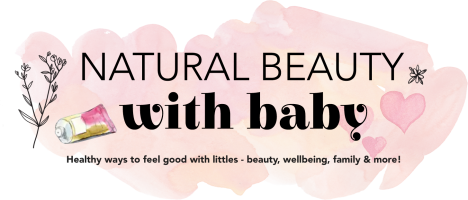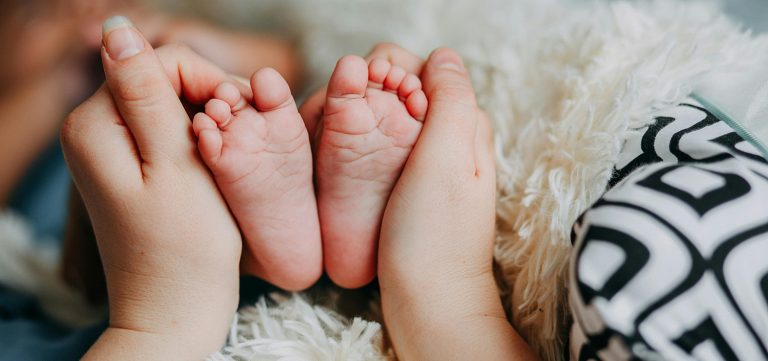“Body and soul: self-care practises after childbirth” is a collaborative post.
Becoming a mother is undoubtedly the most miraculous experience in a woman’s life. However, in addition to happiness and unquestionable love for a tiny newborn, mothers have to deal with less positive feelings. According to statistics, approximately 10-15% of females suffer from anxiety, irritability, anger, guilt, and loneliness after childbirth. Additionally, changes in their physical appearance can make the postpartum period even more challenging.
Are there any ways to make a transition to motherhood smoother and less stressful? Sure, there are. Find out about the best methods for recovering physically and mentally by trying these self-care practises after childbirth.
Possible challenges awaiting new mothers
Maternity is a completely new life chapter for most women. In the past, the number of people talking about postpartum care for mum was staggeringly low. Fortunately, the situation is changing nowadays and society is aware of just how much becoming a mum changes your life. Here’s what to expect physically and emotionally:
Hormonal fluctuations
Oestrogen and progesterone levels plummet after labour. Such uncontrollable hormonal fluctuations affect new mums immediately. Physically – expect fatigue, uterine contractions, appetite problems, vaginal dryness, and possibly hair loss (although it does return, I promise).
Baby delivery injuries
Some women experience childbirth injuries. Childbirth is a strenuous but rewarding process that may cause discomfort and complications for some women. For instance, some mums have:
- Perineal tears
- Episiotomy
- Vaginal lacerations
- Brachial plexus injury
- Uterine rupture
- Abdominal muscle separation
If that happens, medical assistance and the usage of special body care products are an integral part of the recovery process.
Changes in body shape
Body transformations during pregnancy can cause both awe and fear simultaneously. Few females are satisfied with how their body looks after delivering an infant. Dissatisfaction with a physical image usually causes psychological distress. Of course, it takes time to return to a pre-pregnancy state. Still, some women feel miserable and shy because of their appearance.
Mood swings
The spectrum of emotions after a birthing can vary from pure happiness to profound sadness. It is absolutely natural to be in the grip of such mood fluctuations. The good news is that hormones will eventually settle over several months. The bad news – you need to wait. If the waiting seems unbearable, seek professional help.
Postpartum depression
The topic of postpartum depression is no longer stigmatised. This is truly amazing considering how severe and dangerous this mental health condition can get. Today, 1 in 7 women undergo this state. The most common signs are:
- Loss of interest in activities you liked
- Absence of energy
- Constant sadness
- Changes in appetite and weight
- Sleep issues
- Reluctancy to bond with the baby
- Intense anxiety
- Thoughts about self-harm and suicide
Modern practises to take care of the body
There is a new person in your life, who needs your love and support. But giving that to your baby is only possible if you respect and fulfil your own needs first. It’s paramount for a mother to be healthy in order to care for her baby. Learn how to live through turbulences of the postnatal period and replenish energy levels with these tips:
Remember proper nutrition and hydration
Nourishing food should be the main part of our diet in everyday life. But such an approach to meals becomes even more important in the postpartum stage. Focus on healthy foods such as:
- Protein-rich products (meat, fish, eggs, nuts, milk)
- Fruits and vegetables
- Healthy fats
- Whole grains (brown rice, quinoa, whole wheat bread)
Also, drink enough water, especially if you choose to breastfeed.
Organise your rest and sleep
One of the most frequent self care tips from doctors is to have quality sleep. This may seem impossible due to your baby’s natural sleep patterns. Try asking relatives for help, creating a conducive sleep environment, and take advantage of daytime napping.
Move and exercise
Gentle exercises and regular movement can help women feel better and gradually adapt to motherhood in a stress-free manner. Choose walking, swimming, yoga, and mild exercise with a certified trainer.
Include skincare and perineal care
Many women neglect this aspect of post-pregnancy recovery. But caring for your skin is as important as food, water, sleep, and movement. There are lots of products for soothing and moisturising sensitive skin that also prevent infection. When shopping, make sure to purchase skincare products for your newborn too. For extra peace of mind, consult with a paediatrician about the best body care products for a baby.
Top methods for nurturing the soul
The motherhood journey has its ups and downs. To overcome the downs, try these techniques:
Find joy
Think about activities that make you happy. Do you like reading books or watching movies? Are you fond of dancing? Does travelling help you recharge your batteries? Feel free to select anything you like and devote some time to it. According to psychologists, changing routine places is always rewarding.
So, why not hire a van and organise a small trip? You can google “How much to hire a van?” and choose a suitable variant. Or, head to Rental24.co.uk and pick an affordable vehicle there.
Seek support
Managing child-rearing requires many resources. To ensure you have enough energy, share responsibilities with your partner and ask relatives for help. It doesn’t mean you are a bad mum. It only means that you are human and need a break to be the best mother you can be.
Go for meditation
Meditation can be interpreted in different ways. Sitting for several minutes in a calm corner of your home and repeating some positive affirmations is a kind of simple meditation. If you feel overwhelmed by the concept of meditation, you can try searching YouTube for guided meditations to follow along with.
Final thoughts on self-care practises after childbirth
We hope this article has helped to give you some ideas to nurture your body and soul in the postpartum period. Self-care practises after childbirth are a small step you can take to ensure the health and happiness of yourself and your wonderful new baby!






